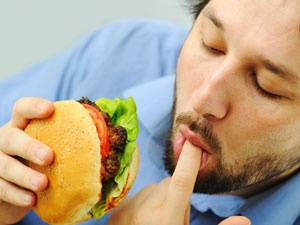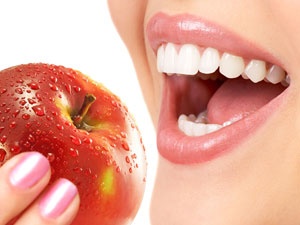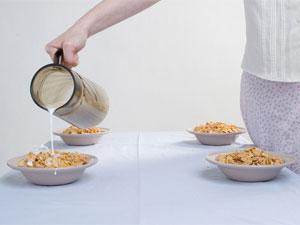Photographs: Courtesy LifeMojo.com Courtesy LifeMojo.com
Here are some bad eating habits and the tips that will help overcome them to live a great life!
Admit it: you've got at least one bad eating habit that you'd love to change. Most of life is habitual. You do the same things you did yesterday, the day before and every day for the last month. Habits, good or bad, make you who you are. Once acquired, they are repeated during your lifetime and there comes a point when you cannot alter them.
Habits first begin as a single thought; then they become a multitude of thoughts, which evolve into actions, then habits; our habits make up our character, and our characters dictates our lives. When it comes to bad eating habits, sometimes it's what we eat and how we eat it. Bad eating habits are formed when we choose to eat things or quantities of food on a regular basis that we know will damage our health.
Breaking bad habits and developing good ones is often easier said then done. There are many ways to break bad habits -- different techniques work well with a variety of them. In the following pages, we bring you the most prevalent bad eating habits and the tips that will help overcome them.
is one of the most trusted sources of information about good health and wellness. To those who want to manage their health themselves, LifeMojo provides necessary information, tips, tracking tools and support to help them stay informed and motivated.
Habit 1: Compulsive snacking
Photographs: Courtesy LifeMojo.com
Eating a healthy snack or two between meals is fine. But when you snack in place of eating a real meal or snack on unhealthy food like chips, namkeens or cookies, it can cause a myriad of problems like unhealthy hair, dull skin with acne and blemishes, constipation, gas, bloating, obesity and cholesterol problems.
Craving carbs and sweets can become an addiction as strong as alcoholism or drug addiction. You can become addicted to food mentally, physically and emotionally.
Tips:
- Eliminate junk food from your house. If it's not there, it's much easier not to eat it!
- If you need to snack, set limits on what you have to eat.
- Eat fruit instead of cookies and chocolates.
- Avoid finger foods, sweet and fatty dips.
Habit 2: Emotional eating
Photographs: Courtesy LifeMojo.com
Many of us learn that food can bring comfort, at least in the short-term. Many people start to binge on junk food because these common comfort foods discharge chemicals or hormones that improve your mood, but only temporarily.
As a result, we often turn to food to heal emotional problems. Depression, boredom, loneliness, chronic anger, anxiety, frustration, stress etc lead to emotional eating.
Tips:
- Idenfity triggers or emotions which lead to emotional eating and develop alternatives to junk food like whole-grain biscuits.
- Read a good book or magazine, listen to music or take a short nap.
- Go for a walk or jog.
- Use breathing exercises to reduce stress and avoid binge eating.
Habit 3: Eating too fast
Photographs: Courtesy LifeMojo.com
A busy lifestyle makes enjoying a leisurely meal an impracticality for some people. Biologically, there are sensors in your stomach that tell the brain when it's filled. If you eat too fast, those sensors don't have time to tell your mind that you are full and you end up overeating.
Also, it is important to understand that an important part of the digestion occurs in the mouth. So when you eat fast, you are not chewing your food properly and leaving more work for the rest of the digestive tract. This may lead to problems like indigestion.
Tips:
- Eat slowly and pause for brief moments after every two-three morsels. Put your cutlery down between each bite.
- Instead of choosing finger foods that can be eaten quickly, always eat food from a plate.
- Take small bites and chew well. Aim to chew each mouthful at least five times before you swallow.
- Drink water between morsels.
Habit 4: Skipping breakfast
Photographs: Courtesy LifeMojo.com
In these fast-paced times, many people choose to skip breakfast. Remember, going without food for several hours could lead to low blood sugar.
Also, people who eat breakfast daily are the ones who are more successful at losing weight and keeping off extra weight. This is because eating breakfast helps them eat normally the rest of the day, instead of going after unhealthy and high-calorie snacks before lunch.
Additionally, eating breakfast can speed up your metabolism early in the day.
Tips:
- First thing in the morning, drink a large glass of water.
- Remember to eat breakfast about an hour or two after you get up in the morning, because this will get your metabolism started.
- If you are short on time, stock the kitchen with easy-to-prepare breakfast foods like cereals with milk, or make a toast and eat it on your way to work. Making time for breakfast is making time to be healthy.
- Go for a combo of protein and whole grains as that will keep you full throughout the day.
Habit 5: Multitasking
Photographs: Courtesy LifeMojo.com
If you watch TV or do other things while eating, your concentration is focused on what you are doing and not on the food you are eating. You lose track of how much you eat. The result is that you end up overeating.
Tips:
- Do not eat while you are busy doing something else.
- Turn off the TV. It's distracting and kills the conversation.
- Take time to eat. Do not just put your food in your mouth.
- Entice your family to sit down to dinner together.
Remember that ditching your old bad habits is all about implementing easy, doable good habits that you can continue for at least 30 days. After that, your body and mind adjust to the new routine.








Comment
article